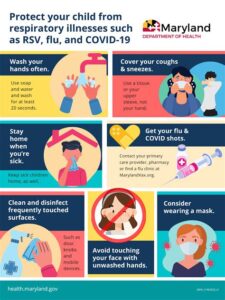Explore the side effects of the RSV vaccine, including common reactions, allergic risks, and tips for managing mild symptoms and knowing when to seek help.In recent years, the development of the RSV (Respiratory Syncytial Virus) vaccine has brought hope to many, particularly for vulnerable populations such as infants and the elderly. However, as with any medical intervention, understanding the potential side effects is crucial for informed decision-making. This blog post aims to shed light on the various side effects associated with the RSV vaccine, from common mild reactions to more severe allergic responses. We will explore how to manage these side effects effectively and when it’s essential to seek medical assistance. By empowering yourself with knowledge, you can better navigate your RSV vaccination journey and contribute to a healthier future for those at risk.
Understanding RSV Vaccine Side Effects
The RSV vaccine has been developed to provide protection against the respiratory syncytial virus (RSV), which can cause severe respiratory infections, particularly in infants and young children. While the vaccine is generally considered safe and effective, like any medical intervention, it can have side effects. Understanding these side effects is important for parents and caregivers to make informed decisions about vaccination.
Common side effects of the RSV vaccine may include mild symptoms that typically resolve on their own.
- Pain or tenderness at the injection site
- Redness or swelling at the injection site
- Fever or low-grade fever
- Fatigue or mild lethargy
These side effects usually occur within a few days of receiving the vaccine and are a normal response as the body develops immunity. It’s essential to monitor the individual who received the vaccine and manage any discomfort with over-the-counter pain relievers as recommended by a healthcare provider.
In rare cases, individuals may experience more serious side effects. It is crucial to be aware of these, such as severe allergic reactions (anaphylaxis), which may require immediate medical attention. Understanding the potential and common side effects associated with the RSV vaccine helps ensure better preparedness and health safety for families.
Common Side Effects of RSV Vaccine
The RSV vaccine has been developed to help protect individuals, especially infants and those with underlying health issues, from the respiratory syncytial virus (RSV). Like any vaccine, it can cause some common side effects, though most are mild and resolve on their own.
- Pain or tenderness at the injection site
- Fatigue or tiredness
- Headache or dizziness
- Mild fever
- Muscle aches
These reactions are typically short-lived and can be managed with over-the-counter pain relievers if necessary. It’s important to note that while these common side effects can be uncomfortable, they are
Potential Allergic Reactions to RSV Vaccine
As with any vaccine, it is important to be aware of potential allergic reactions that may occur after receiving the RSV vaccine. While most individuals tolerate the vaccine well, certain individuals may experience reactions that require immediate attention.
- Urticaria: Also known as hives, this condition can cause red, itchy welts on the skin.
- Angioedema: This involves swelling beneath the skin, often around the eyes and lips, but can occur in other areas as well.
- Anaphylaxis: Although rare, this is a serious life-threatening reaction characterized by difficulty breathing, rapid heartbeat, and a significant drop in blood pressure.
In most cases, allergic reactions to the RSV vaccine are mild. However, it is crucial to be prepared. Individuals who have a history of severe allergies or have experienced an allergic reaction to other vaccines should consult their healthcare provider before receiving the RSV vaccine.
Monitoring for any reactions, staying at the vaccination site for at least 15 minutes post-vaccination, and seeking immediate medical attention if severe reactions occur can help manage the risks associated with the RSV vaccine.
Managing Mild Side Effects of RSV Vaccine
Receiving the RSV vaccine is an important step in protecting yourself and your loved ones against Respiratory Syncytial Virus (RSV). However, like any medical intervention, it may come with some mild side effects. Understanding how to manage these effects can make the vaccination experience smoother and more comfortable.
- Pain or swelling at the injection site
- Fatigue
- Headache
- Low-grade fever
- Muscle aches
It’s important to recognize that these side effects are usually temporary and can often be managed at home.
- Apply a cold compress: This can help reduce pain and swelling at the injection site.
- Stay hydrated: Drinking plenty of fluids can alleviate fatigue and help your body recover.
- Rest: Allow yourself time to recuperate, especially if experiencing fatigue or body aches.
- Over-the-counter medication: Consider taking non-prescription pain relievers, such as acetaminophen or ibuprofen, to relieve discomfort or fever.
Always remember, while it’s common to experience mild side effects, if you notice anything unusual or if the symptoms persist, it’s wise to consult your healthcare provider for further guidance.
Seeking Medical Help for Severe RSV Vaccine Side Effects
As with any vaccine, the RSV vaccine may cause side effects; while most are mild and manageable, there are instances where severe reactions can occur. Understanding when to seek medical help is crucial for ensuring both safety and health post-vaccination.
- Severe allergic reactions (anaphylaxis)
- Difficulty breathing
- Swelling of the face or throat
- Fast or irregular heartbeat
- High fever
- Seizures
If you or someone you know experiences any of these symptoms within a short period after receiving the RSV vaccine, it is imperative to seek immediate medical attention. Early intervention can be critical in managing severe reactions effectively. In the case of any unusual or severe sympto
Frequently Asked Questions
What are the common side effects of the RSV vaccine?
Common side effects of the RSV vaccine may include mild fever, fatigue, and soreness at the injection site.
Are there any serious side effects associated with the RSV vaccine?
Serious side effects are rare; however, they can include allergic reactions or any unusual symptoms that require medical attention.
How long do the side effects of the RSV vaccine typically last?
Most side effects are short-lived and usually resolve within a few days after vaccination.
Is the RSV vaccine safe for infants and young children?
Yes, the RSV vaccine has been tested for safety and effectiveness in infants and young children under appropriate medical guidelines.
What should I do if I experience severe side effects from the RSV vaccine?
If you experience severe side effects, seek medical attention immediately and report the symptoms to your healthcare provider.
Can I take pain relief medication after receiving the RSV vaccine?
Yes, over-the-counter pain relief medications, such as acetaminophen or ibuprofen, can be taken to alleviate discomfort after vaccination.
How does the RSV vaccine help in preventing respiratory infections?
The RSV vaccine helps stimulate the immune system to produce antibodies against the respiratory syncytial virus, reducing the risk of severe respiratory infections.





